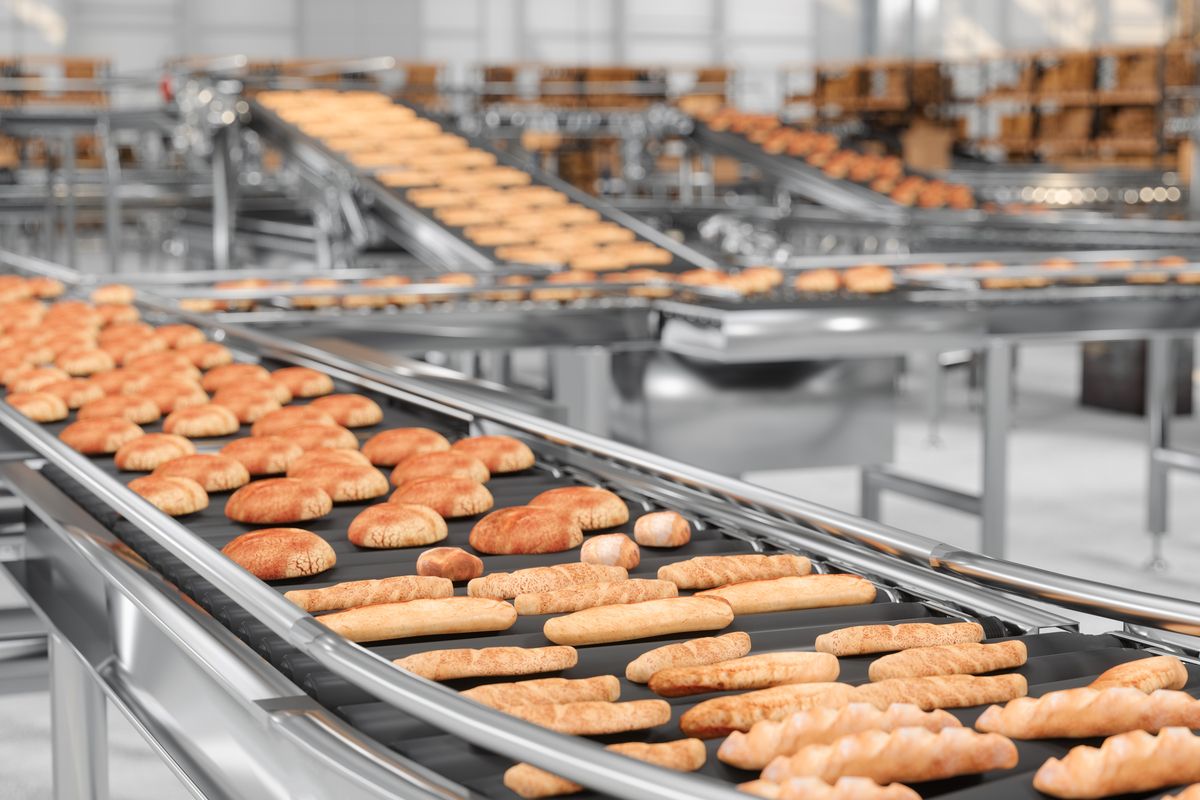In the video interview below, Motley Fool CEO Tom Gardner speaks with Middleby CEO Selim Bassoul. Since becoming CEO in 2000, Bassoul has led a remarkable transformation at Middleby, the cooking equipment maker. Bassoul shares below the strategy that has made the stock nearly a 50-bagger during his tenure.
A transcript follows the video.
Tom Gardner: Now we talked about this before, and if we could, you sort of touched on it there, but a walking tour of your experience at Middleby. You started in 1996 as a president of the South Bend division. You then became COO in 1999 and then you became CEO in 2000. What was happening at Middleby in those years that's different than what happened in the 13 years that have followed?
Selim Bassoul: Well what happened at Middleby during those years, it was literally a me-too company. We were emulating everybody else. And management, of which I was included to, were trying to be best in everything. We were basically trying to be a turn-key provider, a one-stop shop to the restaurant owner. We would come in and say, We can equip your total restaurant. We could do cooking, refrigeration, deli cases, mixers, everything, freezers.
And then I realized that we were not good at anything. We were scattering our resources across a lot of technologies, from cold to hot to food processing, in terms of mixing and slicing, so we ended up saying, no, let's go and refocus the business on what we do best, which is cooking.
So we went away, we disbanded almost over a third of our business. We went from...
Gardner: Simply disbanded it, you didn't even sell it.
Bassoul: We didn't sell it. Within 90 days, we said, We're not good at that; let's get rid of it. Let's shut it down. We in fact wrote off a lot of inventory and within literally 90 days, we went from being a one-stop shop to becoming focused totally on cooking.
Gardner: I mentioned to Selim that one of the things that I started following as an investor are companies when they're in a turnaround, you will see the sales growth rate; maybe sales have been declining and when that decline rate decelerates. So if last year they lost 20% of their sales and this year they lose 8%, next year they lose 2%, this is actually a growth company, but it doesn't look like it and there are some great opportunities for investing.
That's how I found Middleby, was just I saw that the rates were turning. But then the reason that I recommended it was that the sales decline was that you were simply disbanding lines that weren't interesting to you. It wasn't that your core business was turning around; it was that you were abandoning all the peripherals to the core business that you believed in. That core business was actually growing and potentially set up for an incredible...
Bassoul: But Tom, during those years, from 1996 to 1999, we were a complex business. We were trying to be expert in refrigeration with all the laws of refrigeration. We wanted to be expert in gas combustion. We wanted to be expert in electrical, basically appliances, and we were not good at anything. In fact, I can give you some data. When your business is so complex, and we were basically a $150 million business; not a large business, but which was so complex that 30% of our orders were not fulfilled on time. We had 30% of our customers, or over 30% of our customers churned every year because we couldn't retain them.
Our employees, we had an employee turnover of almost 25% a year. Engineers couldn't keep up because we couldn't give them the resources. We were spreading the little cash we had over so much technologies, and we were not good at anything.
Gardner: And so what type of debate did it take inside the company to make the decision to focus and to just disband? Because the stock, split adjusted is like a $3 stock at that point. It's not been a good investment for anyone and the idea of just abandoning sales, there must have been some controversy in that decision or was it pretty easy to convince people that it was time to focus on something you could excel at?
Bassoul: I think it was an easy part, because we were basically drifting away. We were becoming irrelevant in the space. But the most difficult one was the next phase. Everybody can disband. Everybody is excited about cutting SKUs, but what do you do next? So once you cut your sales, cut your SKUs, you now have obsolete inventory, that's an easy task. The toughest task is now how do you become the next company?
So now we stuck together in a room for three days. So now we're focusing on the hot side. What do you want to be as we look for five years down the road? And as we sat in that room, we filled the walls with those Post-It charts where people say, Well, let's become a basically, a versatile cooking. Let's become a faster cooking platform. Let's become a company that can offer easy-to-clean appliances. And we ended up settling on energy savings. We could not afford to do; all those were great ideas, but you could only do one. We had only money for one. Our EBIDTA was less than I think $5 million at the time, so we didn't have enough cash to go out and explore all those ideas. We had to hit it right.
So we went back to a data that Morgan Stanley had done, and they had the data up for 25 years showing that the restaurant business or restaurants, utility costs have gone up every year by 20%, every year over 25 years. But however, when you went and sat with the operators of those restaurants or those chefs, it was not a concern to them. So we said, let's tackle this.
At the same time, there was a company in the year 2000 called Toyota where the chairman, and I was at the time flying somewhere and I was leaving that interview saying, I'm going to disrupt the car industry by introducing a hybrid car that will basically go up to 50 M.P.G. I said, Wow. Us and Toyota are going to be similar. We're going to look at energy savings in our space; they're going to look at energy saving in their space, and at the time, when I introduced energy savings, and I keep on telling that anecdote, that same year, GM purchased Hummer, and the Hummers were selling like hotcakes because everybody loved them, and they were basically using nine gallons, nine miles per gallon, and nobody cared. So when I came back to our board and said, Well, let me tell you, our concept is now to be energy saving. They looked at me and said, Selim, America doesn't care about energy.
Well it took us some time and today we are the biggest provider of energy-saving appliances in the world. We have more Energy Star-rated appliances than anybody else. Today, there is not a single person in a restaurant or in a food processor where they don't ask you about how much energy are you saving, and we are so much ahead of everybody else.
Gardner: So do you think of yourself as a pioneer coming up with disruptive ideas yourself, or do you think of yourself as somebody who sees the world and tries to piece together the best ideas you encounter. Or maybe they are one in the same?
Bassoul: No, no, we don't see ourselves as pioneers. In many ways, we are more settlers. I have to tell a lot of people, when you have very little cash the way we had, you cannot be pioneers. However, you could succeed as a settler. Let me give you an idea of settling. I'm going to give you several examples of what the concept of settling would be.
We did not invent the ventless system. What happened is I was sitting on a plane traveling when I was sitting next to an executive at a steel mill. It was explained to me how steel mills, furnaces in a steel mill uses a lot of energy. They recapture all that heat that went through the chimney, and recaptured it and reutilized it. They reutilized almost 90% of it back into producing steel. So that idea came to me and said, wait a minute. How come in our kitchens, in our customer's kitchen, all that heat that is generated from the oven, from the range, from the fryer, end up going up in the air through the vent, through the hood. So what we did is how can we recapture that? And then we ended up recreating a ventless system, emulating what a steel mill looks like.
Then we looked at the pizza oven business, and the pizza oven used to take basically 12 minutes to cook a pizza. We said: Wait a minute. If those people want to compete on lunch, let's figure out a way to get people in and out in less than five minutes. So we ended up creating the wall oven that bakes a pizza in less than five minutes. So there have been a lot of ideas...
Gardner: Speed and energy efficiency, and those ideas can come from anywhere.
Bassoul: From anywhere. But we adopted them, applied them, and became the best at it.






